
I Was Fired by the Institute for the Study of Totalitarian Regimes. I Wonder Why
10. 10. 2022
/
Muriel Blaive
čas čtení
12 minut
In October 2022, I was fired by
the Institute for the Study of Totalitarian Regimes, where I had been
working since 2014. Seven of us, out of whom six women, were fired
simultaneously, including two of my former bosses, Blanka Mouralová
and the former ÚSTR director, Pavla Foglová, and the librarian Livia
Vrzalová.
But apparently, I was
the only one from within the research departments to be thrown out.
Here is the update on personnel movement we all received:

I was of course wondering why
I was fired. When I was officially notified, I received this
explanation:
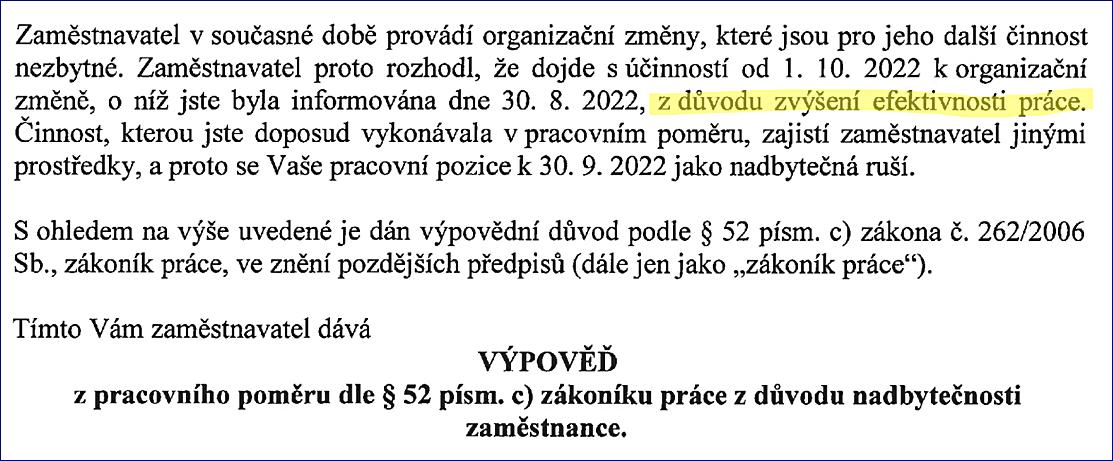
So, I was fired in order to
increase the institute’s work effectivity. It is strange, because I
was under the impression I was quite productive. Notwithstanding the
fact that I was the first researcher to ever receive a GAČR grant at
ÚSTR, in 2016, here are the headlines of the articles I published,
am about to publish, or submitted for publication only in the last
two years (since 2020), all in top international journals or
international academic publications, and keeping in mind that I was
working only part-time at ÚSTR from September 2021 to October 2022.
As it happens, this has probably been the most productive period of
my life:

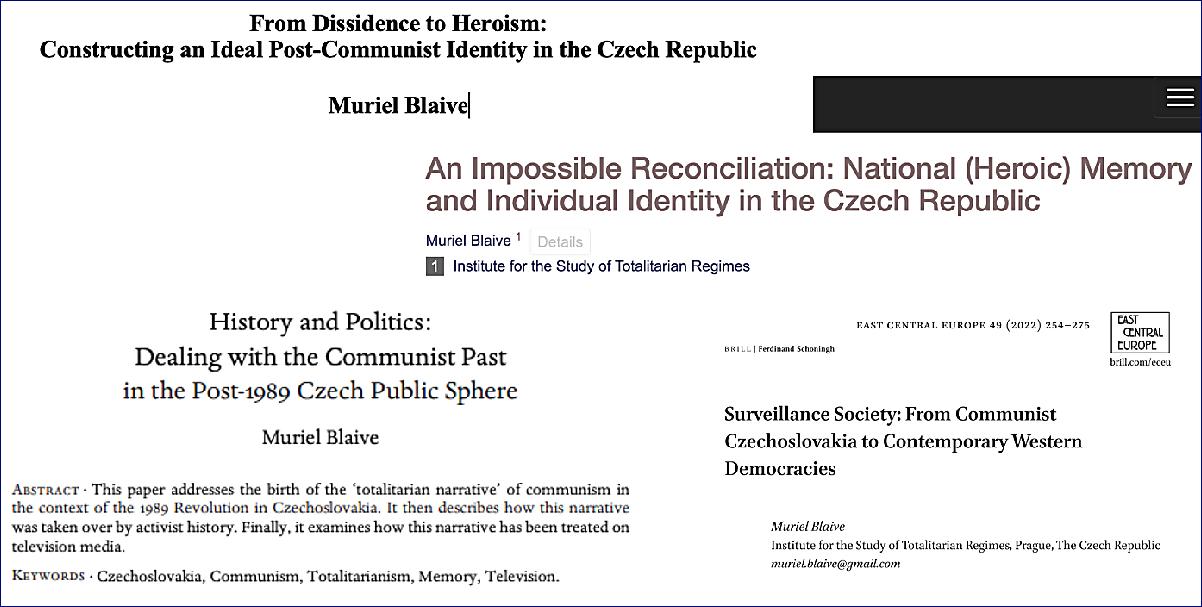
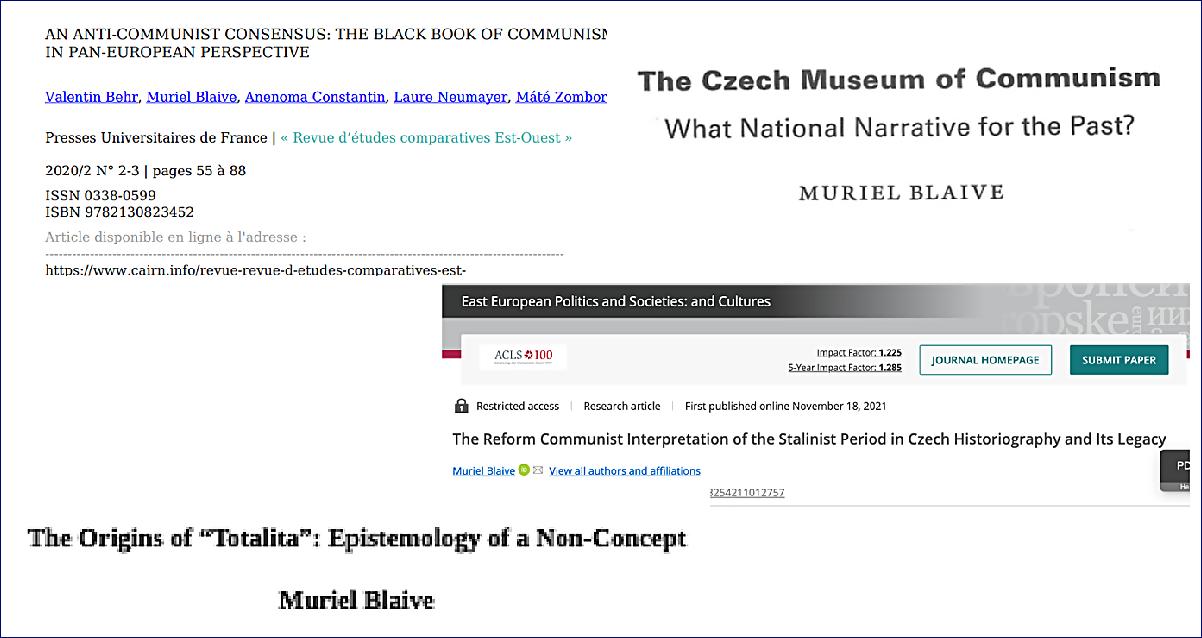
Perhaps my employers thought I
was not engaged enough in the Czech public sphere? But also since
2020 I published not a few articles addressed to the Czech wider
public:
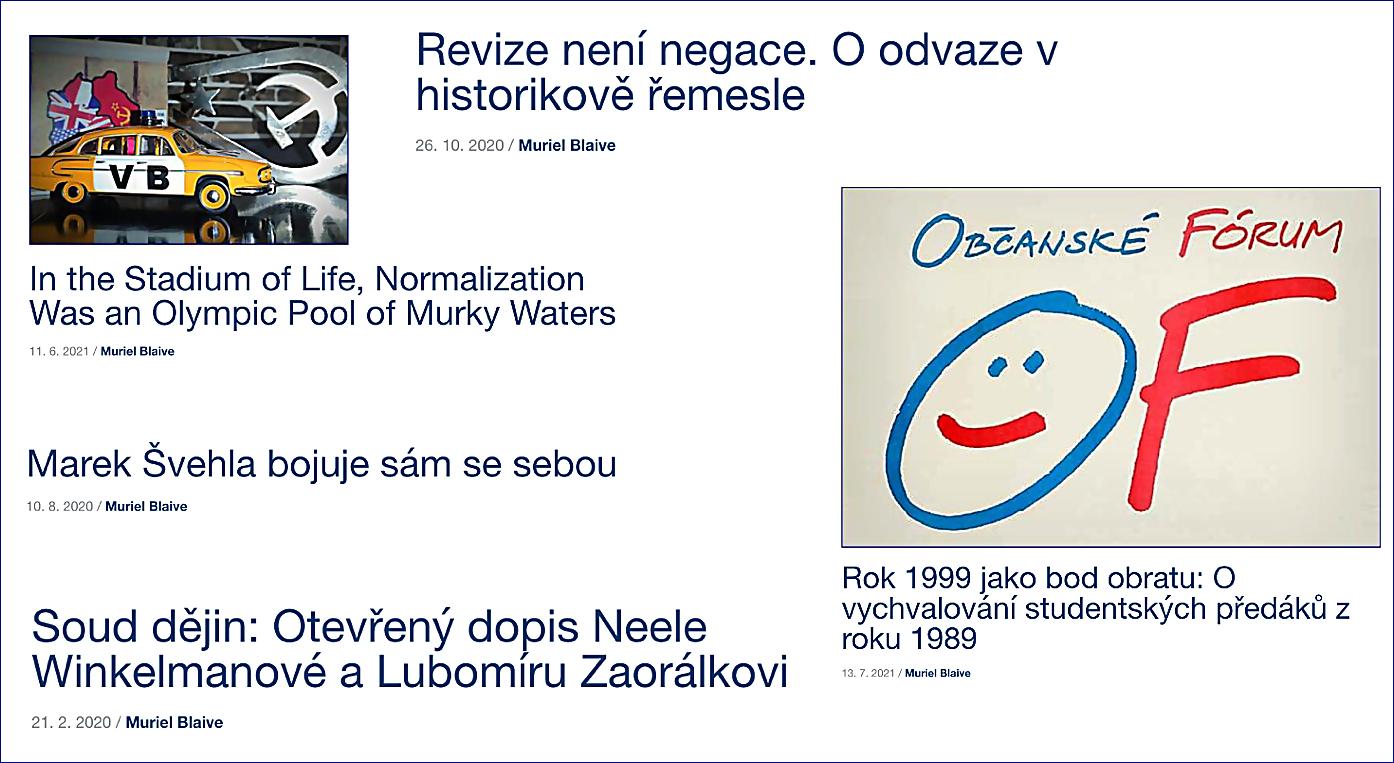
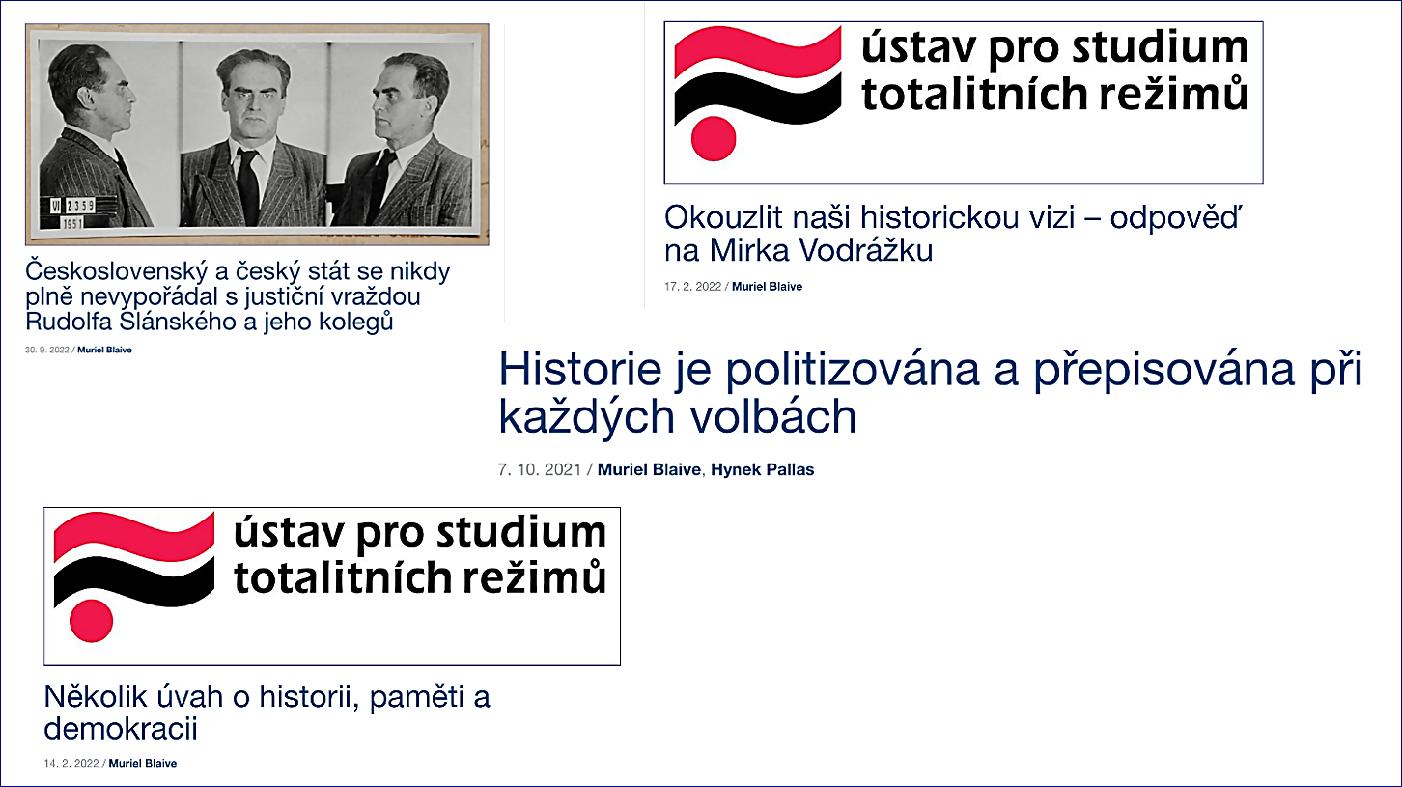
Since neither my academic
publications nor my publications for the wider public appear to be
the problem, I reflected that my employers might have thought I did
not have enough of an international profile, so I checked my status
on Web of Science. Web of Science is an international metric database
that measures the influence of scientists via the references to their
work in other researchers’ publications in impacted peer-reviewed
journals. While I have reserves about its usefulness in social
sciences (it is, as often, conceived for hard sciences), its aim is
to provide an immediately measurable instrument to evaluate
researchers, and it is widely used by universities and research
agencies. The Czech Science Agency (GAČR) uses it, too. Here is my
profile:

My H-index is 2. Is it much?
Is it little? Let us compare it with the director of ÚSTR, Ladislav
Kudrna, who is habilitated, which is in theory a higher rank than
mine:

Unfortunately, he is not
indexed, i.e. his record is less than zero and he has no visibility
at all at the international level. But then, international journals
are usually not impressed by plagiarizers, and according to a special
commission nominated within the ÚSTR Scientific Advisory Board that
gave its conclusion in 2021 and was made public in 2022, this is
exactly what Ladislav Kudrna is (which didn’t stop the Board of
ÚSTR from electing him director):
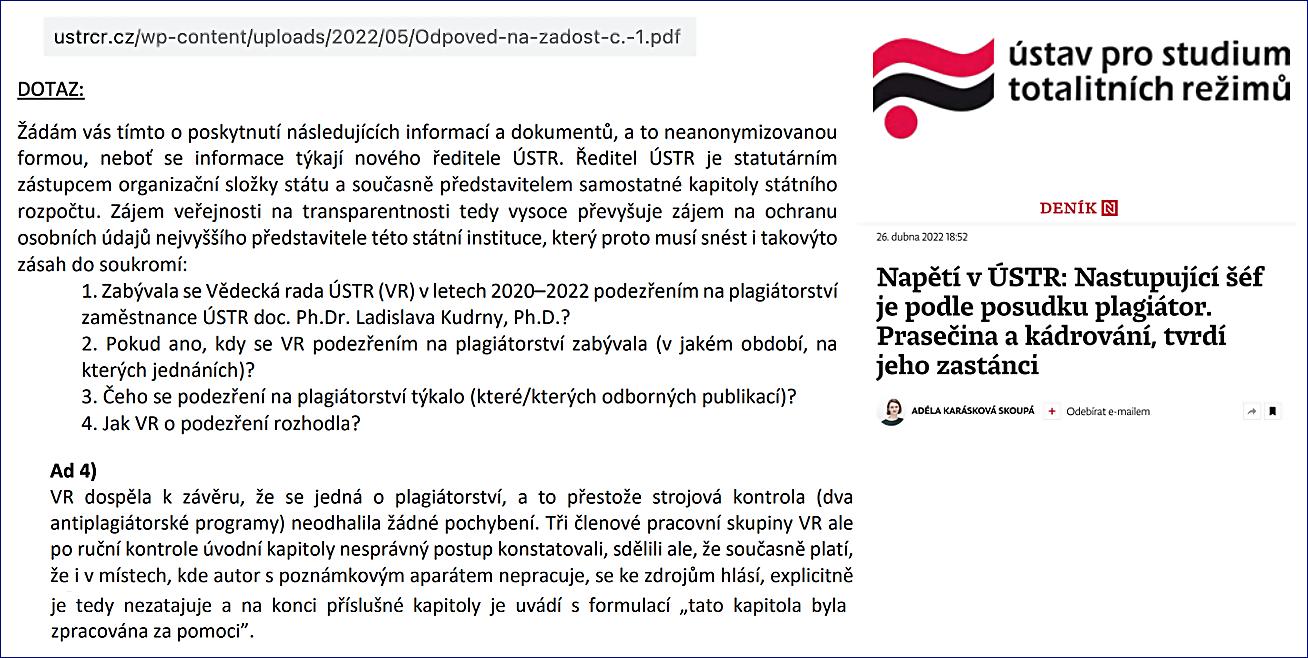
If the director doesn’t have
a record, what about other leading members of the institute? I
checked:

It appears all the men at the
helm of the institute have a lower scientific reputation than mine,
or none at all. I checked on our most famous colleague at ÚSTR, Petr
Blažek. I was impressed that he had an H-Index of 5, until I
realized this is not the same Petr Blažek: this one is a biologist
specialized on agriculture. I didn’t find “our” Petr Blažek in
the database, but this might be a mistake – I also can’t find the
director of the Institute for Contemporary History, Miroslav Vaněk,
although he is widely published in English. Different universities
have different levels of access to the database, so this is perhaps
the explanation.
In any case, I then checked
some more of my colleagues at ÚSTR:



I did not check every name.
But from this preliminary search, I seem to be the most published, or
at the very least one of the most published, researchers of the
institute. Let me reiterate that this H-Index might not deserve the
faith research agencies put in it, and it rewards age and experience.
I know for a fact that some of my younger colleagues who are absent
from the database or have a low score are nevertheless excellent
historians. But my point is, if a Czech institution has the good
fortune to hold in its ranks a researcher who has a relatively high
international profile, shouldn’t it aim to keep them rather than
fire them?
The rest of the world appears
more aware of my value as a researcher than ÚSTR: in 2018-2019 I was
granted a prestigious EU fellowship, the EURIAS, at the Institute for
Human Sciences (IWM) in Vienna, as well as an equally prestigious
Marie Curie Senior Fellowship at the University of Aarhus in Denmark
(which I had to turn down since I couldn’t do both fellowships at
once.) In 2020-21 I was granted a Senior Fellowship at the
Internationales Forschungszentrum Kulturwissenschaften also in
Vienna, then in 2022 a four-year Elise Richter Senior Fellowship in
the Department of Sociology at the University of Graz.
My fellowship in Graz was an
ideal opportunity for ÚSTR to engage in an international
cooperation. The Austrian research agency FWF allows me to work for
only five hours a week on top of my full-time fellowship. By working
five hours for ÚSTR (12,5% of a full-time position), I would have
cost the institute a negligeable Kč 6,000 a month (gross), but I would have been able to credit all my international
publications to the institute, and I would have created a
relationship to the University of Graz which could have proved
profitable in the future to both parties. Also, my project appears to
me of great interest for a memory politics institution like ÚSTR: it
is about reckoning with the communist past in the Czech Republic, and
specifically about resorting to the category of crime against
humanity, as Romania now does, to finally punish some of the crimes
committed under the communist regime that went completely unpunished
after 1989.
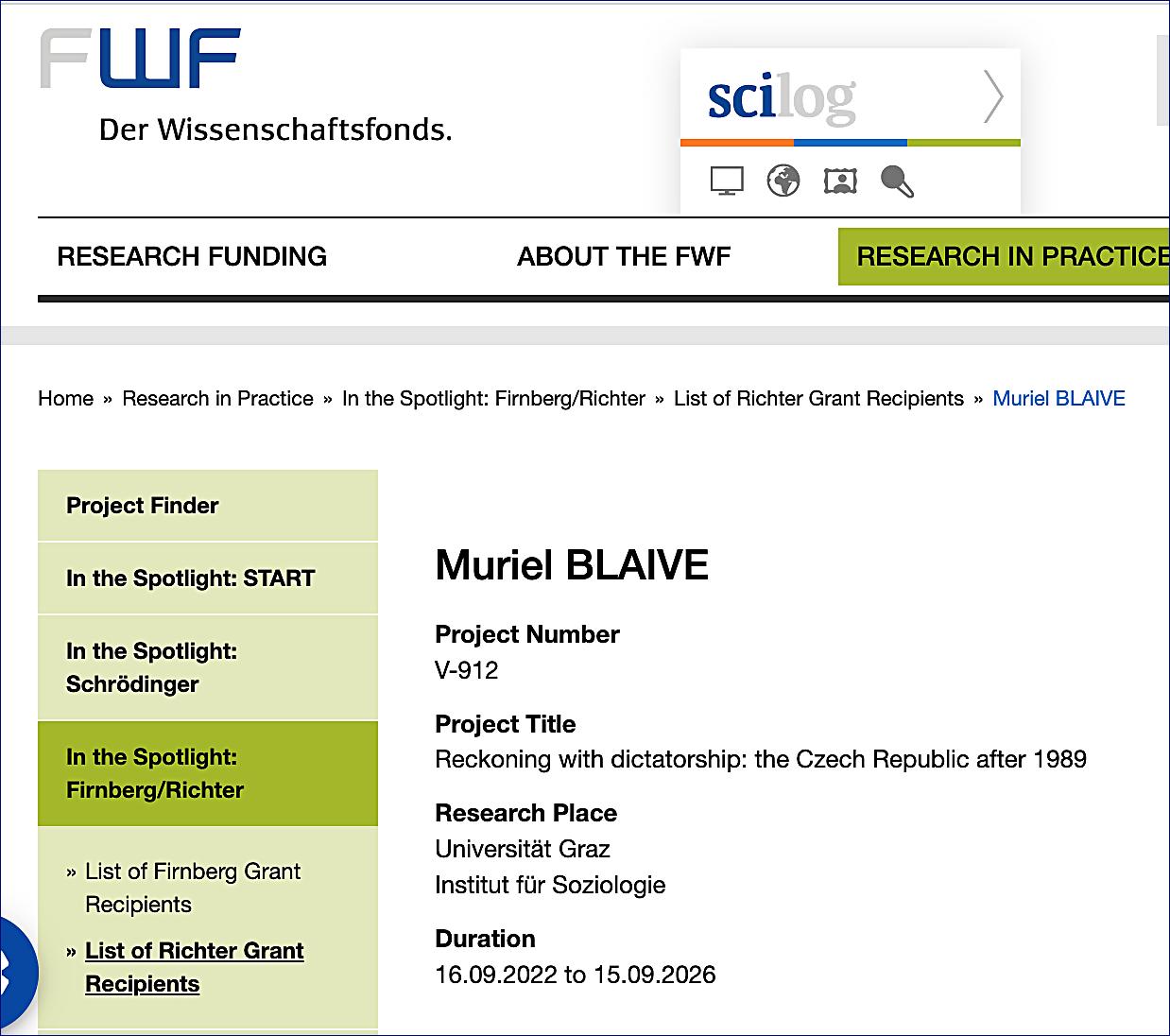
“We are not interested”, I
was told by the directorship of ÚSTR. “This is not in our
purview.”
Next I offered ÚSTR to do in
these five hours a week the project for which I had earned my senior
Marie Curie fellowship. As the readers of Britské listy will know, I
am not a great supporter of the theory of totalitarianism, but the
instrumentalization of medical power to implement communist
domination on the female body via the medical and social practices of
childbirth is a fascinating case of what even I consider genuine
totalitarianism.
“Women are very interesting,
but we are not interested”, said the directorship again.
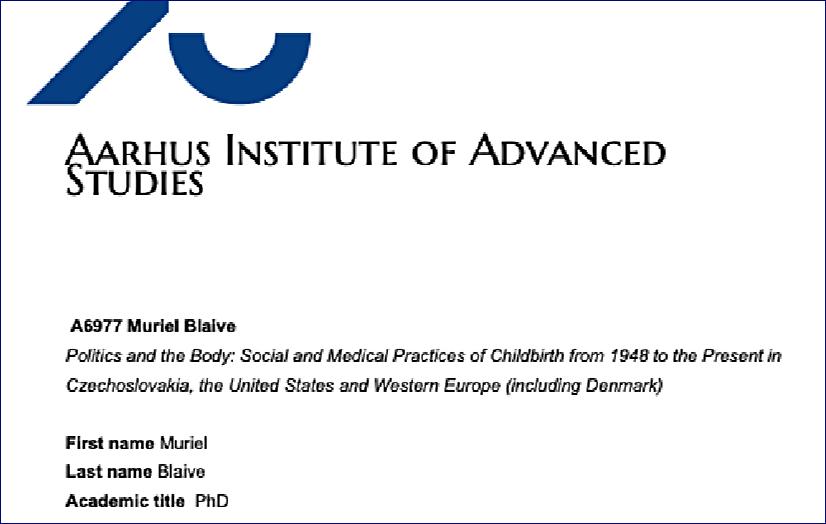
I work on little projects here
and there that could easily occupy me five hours a week (recently,
one on Rudolf Slánský, one on an ordinary family who emigrated in
the 1970s, one on the concept of “totalita”, one on Václav
Havel’s essay The
Power of the Powerless,
and I will also soon go back to České Velenice to continue my oral
history study at the border.) But I never got a chance to offer to
work on these projects as I received notification of my being fired
without any further negotiation. Had ÚSTR kept me on board while
demanding that I work more hours, I would have gone back to FWF and
asked for an exemption from the five-hour rule – especially since
the Czech salary I am getting is, from an Austrian point of view,
negligeable: contrary to what Mirek Vodrážka once accused me of, I
was really not in this job for the money. However, it all ended
differently. Director Kudrna had promised the trade unions he would
not fire any researcher, so the trade unions are fulminating; but
then, can one ever trust the word of someone who was proven by an
expert commission to be a plagiarizer?
Since it appears difficult to
justify that my publication record, my international profile, or my
research projects could really hamper the “work productivity” of
the institute, what could possibly be the reason for my being fired?
Journalist Barbora Tachecí of state public radio might have the
answer. She has a limited understanding of my research, but a strong
opinion as to the opportuneness of ÚSTR
hiring me as a researcher.
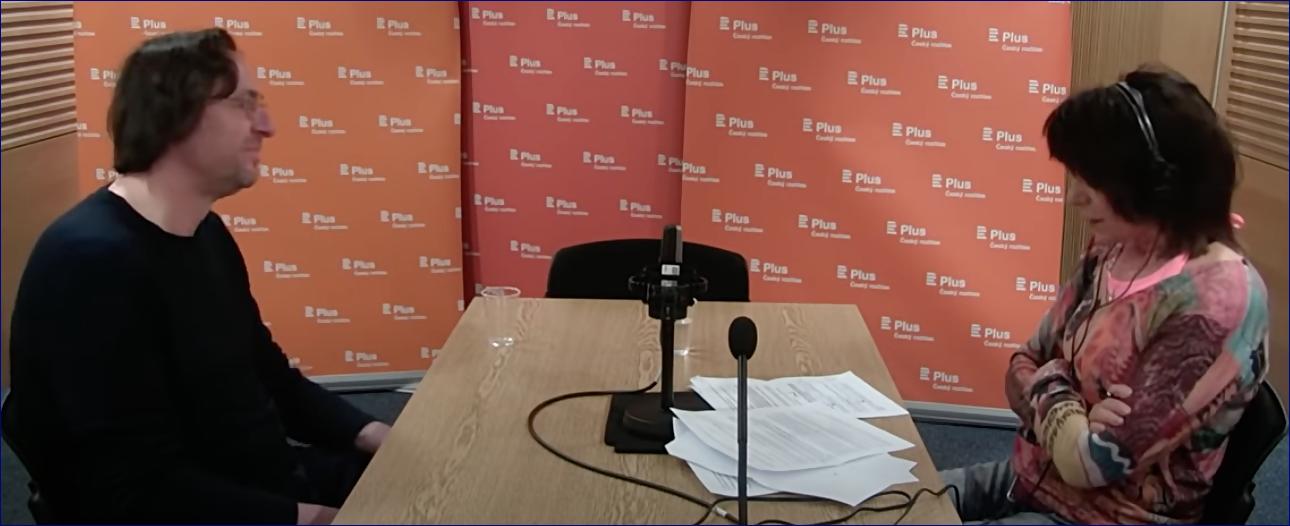 In March 2022 she interviewed
newly elected director Ladislav Kudrna and had with him the
following exchange concerning my research, which starts at
15’07’’:
In March 2022 she interviewed
newly elected director Ladislav Kudrna and had with him the
following exchange concerning my research, which starts at
15’07’’:
Tachecí: I
can't help it, because that Ms Blaive, who is most famous for her
statement that there was no violence at all during the Communist
Party rule here, but everything was part of a broad agreement between
the population and the state leadership, so this lady was and maybe
still is, I ask you, a collaborator of ÚSTR?
Kudrna: If
I have the correct information she is still an employee of the
Institute for the Study of Totalitarian Regimes.
Tachecí:
Which you are the head of.
Kudrna: Of
which I am now the head, yes.
Tachecí:
Well, how are you going to deal with this?
Kudrna:
(laughing) How do we deal with it... Well, look, there's no doubt
that my colleague Blaive is an educated woman. She undoubtedly
understands her craft, I have no doubt, but I have no doubt that our vision of the past is vastly different, and I for one ... I don't
want to have statements made on the floor of the Institute that just
don't take its statutory mission into account. That sort of puts us
in a cul-de-sac. (...)
Tachecí:
No, I mean, it's terribly interesting what's considered revisionism
and what's considered fabrications, or untruths, or outright lies, yes?
At what point do you consider statements that evaluate the past in
contradiction to all historical facts to be, in a relatively
conciliatory way, revisionism, and at what point do you say “you're
just a researcher who doesn't stand for anything if you don't base it
on known facts“, do you understand me?
Kudrna: I
understand.
Tachecí:
(...) A mathematician can say, I don't allow anybody here at the
institute who doesn't know that 1 and 1 are 2, and you say, but he
can have the opinion that 1 and 1 are 3, but I don't allow that at
the institute. Do you understand me?
Kudrna: I
understand, I understand (laughter), we understand each other on that
point.
Was I not, in reality, fired
for political reasons? This is what I want to argue in a court of law
since I intend to sue ÚSTR. I have worked and written on the policy
of dealing with the communist past in the Czech Republic since 2002,
i.e. for exactly twenty years. I have quipped during the last
election of the ÚSTR director, for which I applied, but my
application was discarded on technical grounds, that I was the only
one among the candidates who actually cared about history, and the
same could probably be said about the previous election in 2014. I
could not be less interested in Czech politics, and/or in positions
of power or prestige. I only want to do my job as a historian.
Indeed I care greatly about
history. Why? Because one of the very first persons I met in Prague
was a woman who had been threatened by the StB and blackmailed on
account of her children, and after 1989 she saw this StB agent pursue
his career without the least impediment. In 1996 I read Josef
Škvorecký’s novel Two
Murders in my Double Life,
in which he describes the ordeal experienced by his wife, novelist
and publisher Zdena Salivarová, after she was accused of being on
the Cilbulka list of collaborators – she won her trial, but not
before being heartbroken. Over the years I witnessed multiple
scandals in Czech (but also Polish, German, and Hungarian) public
life and was also made privy to heartrending private stories of
injustice in dealing with the communist past, either because people
were wrongly accused of being collaborators, or because the communist
officials who had ruined their lives never had to account for their
actions after 1989. I led oral history interviews and listened to
ordinary Czechs angrily recount the level of asset-stripping and
corruption, and the rise of social inequalities, that accompanied the
so-called transition to democracy. I saw this country squander its
egalitarian heritage and plunge into historic levels of individualism
and selfishness, not only leaving behind an impoverished part of its
population but endangering, because of the level of popular anger
that this resulted in, the European Union that I have always
supported.
Because identity is so
intimately linked to history in this part of Europe, historians can
and should have much to say about memory politics. Contrary to many,
I remain convinced that ÚSTR was very much needed as an institution
and has a strong cohesive role to play within Czech society. What I
have had to witness, deconstruct, and write about so far,
unfortunately, is rather the instrumentalization of the communist
past for present political purposes that have nothing to do with
history, and even less so with the well-being of the Czech
population. And just like the ordinary Czechs I regularly interview,
I don’t like hypocrisy.
9044

In March 2022 she interviewed
newly elected director Ladislav Kudrna and had with him the
following exchange concerning my research, which starts at
15’07’’:
Diskuse